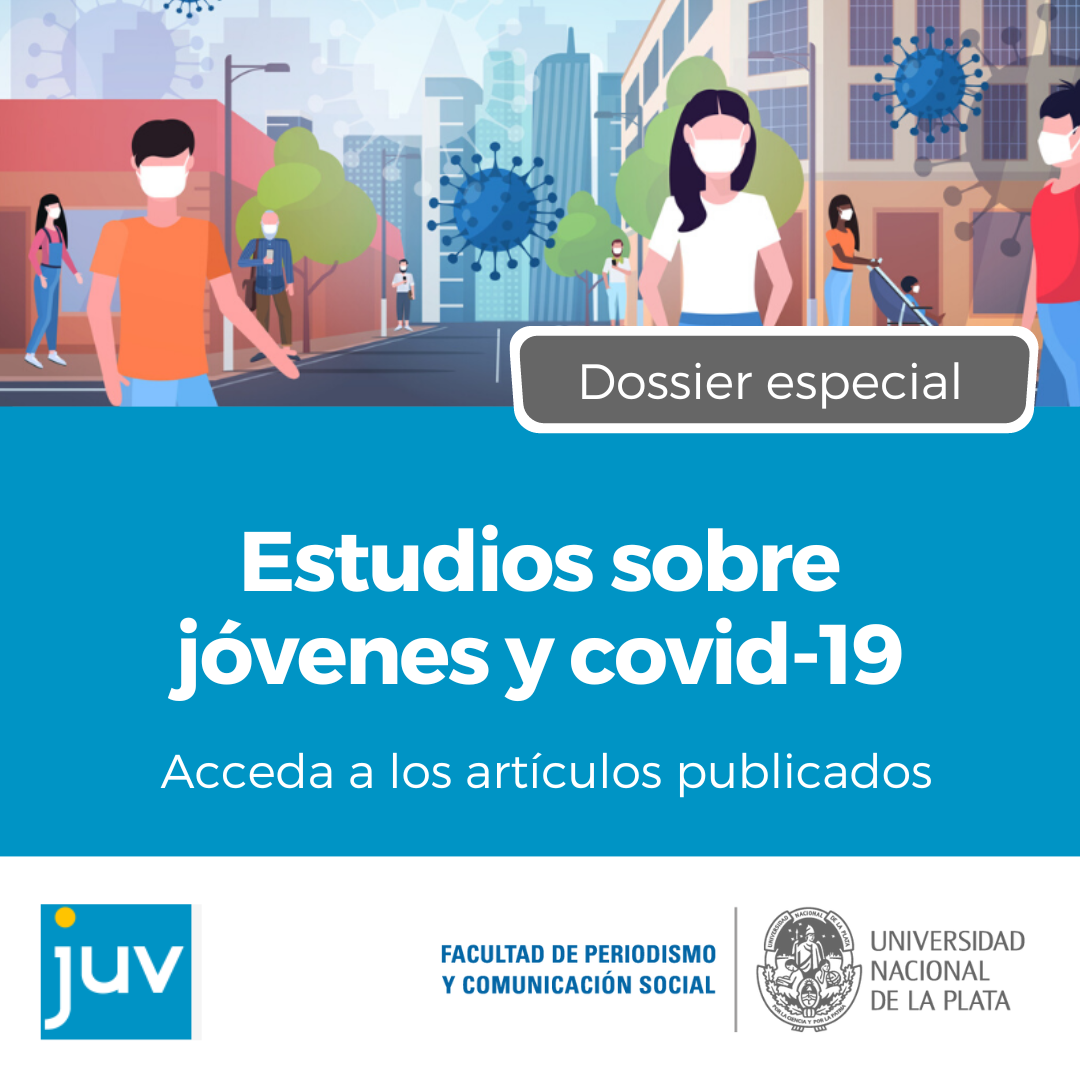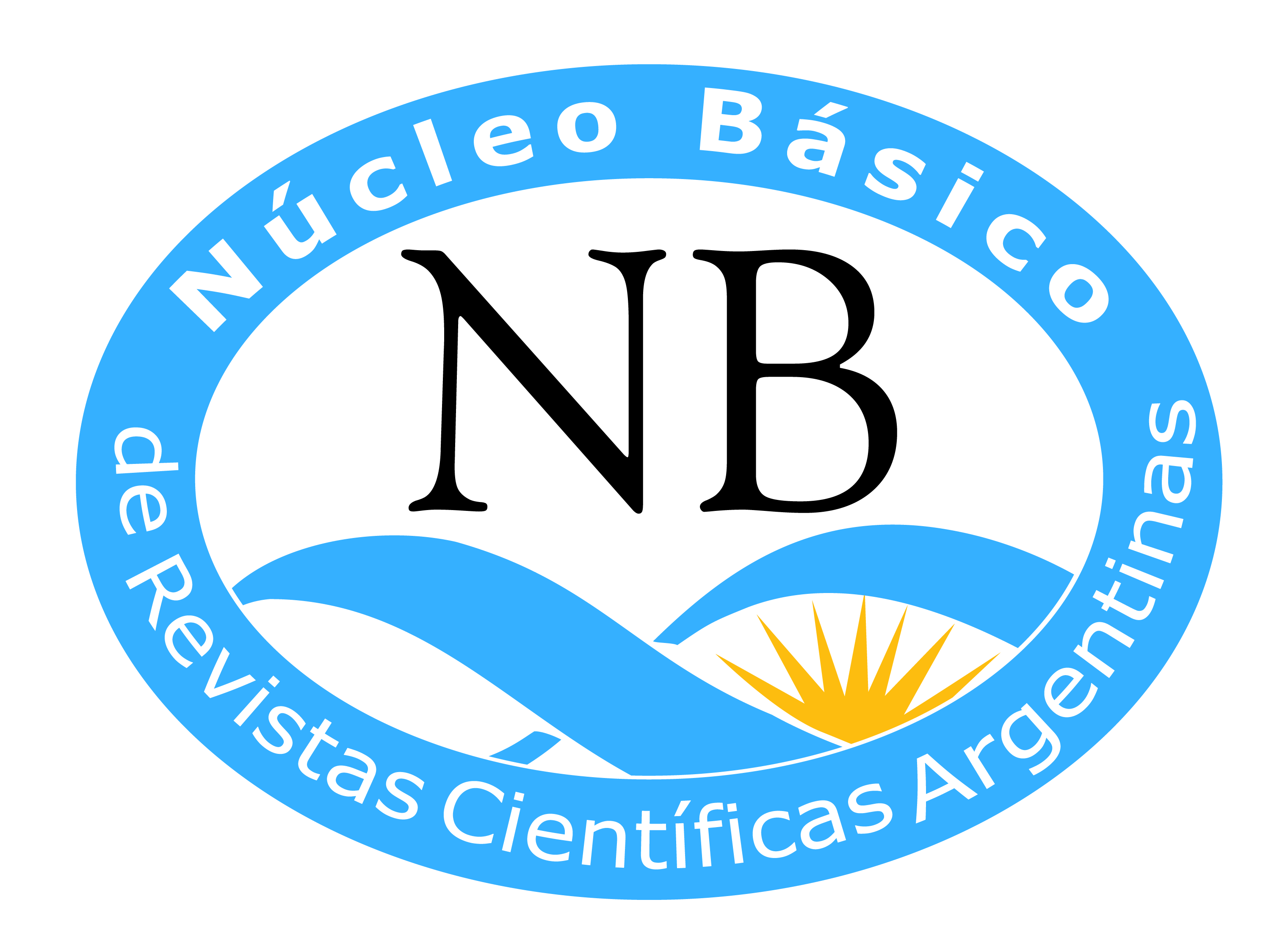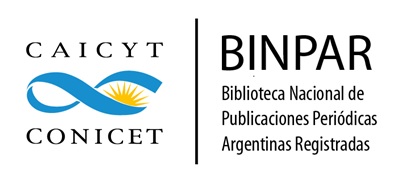Inherited, Attributed and Claimed Identities
The Case of Young People from the El Martillo Neighborhood, Mar del Plata, Argentina
DOI:
https://doi.org/10.24215/18524907e085Keywords:
youth, social identity, hegemonic identity, ethnographyAbstract
Based on ethnographic work that included in-depth interviews and participant observations, the research investigates the construction of social identity of young people who live in the El Martillo neighborhood of the city of Mar del Plata, Argentina. As the main finding, it is established that in this process come into tension and dispute the inherited identities as a result of socialization in different institutions, the identities attributed by the adult world, the hegemonic identity associated with being young in actual society, the negativized identity assigned by the media and the identities that young people themselves claim.
Downloads
Metrics
References
Brunet, I. y Pizzi, A. (2013). La delimitación sociológica de la juventud. Última Década, 21(38), 11-36. https://ultimadecada.uchile.cl/index.php/UD/article/view/56126
Bourdieu, P. (2002). Sociología y Cultura. Grijalbo.
Bourdieu, P. (2007). El sentido práctico. Siglo XXI.
Bourdieu, P. y Passeron, J-C. (1996). La reproducción. Elementos para una teoría del sistema de enseñanza. Fontamara.
Bourdieu, P. y Passeron, J-C. (2009). Los herederos. Los estudiantes y la cultura (Trad. Marcos Mayer). Siglo XXI.
Chaves, M. (2005). Los espacios urbanos de jóvenes en la ciudad de La Plata [Tesis de Doctorado, Universidad Nacional de La Plata].
http://sedici.unlp.edu.ar/handle/10915/4485
Chaves, M. (2010). Jóvenes, territorios y complicidades. Una antropología de la juventud urbana. Espacio Editorial.
Chaves, M. (2023). “Una de las cosas que los pibes más piden, además de trabajo, es ser escuchados” / Entrevistada por A. Puiggrós y A. Cannellotto. Revista Argentina de Investigación Educativa, 3(6), 193-209. https://portalrevistas.unipe.edu.ar/index.php/raie/article/view/282
Corica, A. M., Otero, A. y Merbilhaa, J. G. (2022). Passagem da escola secundária à universidade: um estudo sobre os apoios de acompanhamento para jovens na Argentina. Trabalho e Educação, 31(2), 45-60. https://doi.org/10.35699/2238-037X.2022.41156
Dodaro, C. y Díaz Ordoñez, V. (2020). Deconstruir el mal menor, discutir el estigma. Reflexiones sobre jóvenes, medios de comunicación y activismo cultural. Avatares de la Comunicación y la Cultura, (19). http://id.caicyt.gov.ar/ark:/s18535925/4r3xh5kar
Dubar, C. (1991). La socialisation: construcción de identités sociales et profesionelles. Armand Colin.
Dubar, C. (1992). Formes identitaires et socialisation professionnelle. Revue française de sociologie, (33-34), 505-529.
Dubar, C. (2002). La crisis de las identidades. La interpretación de una mutación (Trad. José Marcía Marcén). Ballaterra.
Gallego, E. y Granada, P. (2008). Jóvenes, culturas y universidad. ¿Desde dónde se aprende? Revista Académica e Institucional, (58).
Gewerc, A. (2001). Identidad profesional y trayectoria en la universidad. Profesorado. Revista de Currículum y Formación de Profesorado, 5(2).
Goffman, E. (2006). Estigma. La identidad deteriorada. Amorrortu.
Guber, R. (2011). La etnografía. Método, campo y reflexividad. Siglo XXI.
Jacinto, C. (2013). La formación para el trabajo en la escuela secundaria como reflexión crítica y como recurso. Propuesta Educativa, (40), 48-63.
Kossoy, A. (2009). La construcción de la identidad social: cuestiones metodológicas para su análisis. En XXVII Congreso de la Asociación Latinoamericana de Sociología. VIII Jornadas de Sociología de la Universidad de Buenos Aires. Asociación Latinoamericana de Sociología.
Lozano Urbieta, M. I. (2003). Nociones de Juventud. Última Década, 11(18), 11-19. https://ultimadecada.uchile.cl/index.php/UD/article/view/56046
Margulis, M. y Urresti M. (1998). La construcción social de la condición de juventud. En H. Cubides, M. Laverde y C. Balderrama (Eds.),
Viviendo a Toda. Jóvenes, territorios culturales y nuevas sensibilidades (pp. 5-21). Siglo del Hombre.
Martín-Criado, E. (2005). La construcción de los problemas juveniles. Nómadas, (23), 86-93. https://nomadas.ucentral.edu.co/index.php/26-
articulos-23/358-La-construcci%C3%B3n-de-los-problemas-juveniles
Mejía Navarrete, J. (2002). Problemas metodológicos de las ciencias sociales en el Perú. Fondo editorial de la Facultad de Ciencias Sociales,
Universidad Mayor de San Marcos.
Núñez, A. (2011). Las moradas del olvido… como tragedia y Las moradas del olvido… como farsa. En A. Núñez y M. A. Ciuffolini (Comps.), Política y territorialidad en tres ciudades argentinas (pp. 141-166). El Colectivo.
Parson, L. (2020). Una breve reconstrucción de la historia del barrio El Martillo. En C. Germinario y C. Madroñal (Comps.), Estudios y proyectos en curso de Jóvenes Investigadores. IV Jornadas de Jóvenes Investigadores del Centro de Estudios Históricos (pp. 154-163),
Universidad Nacional de Mar del Plata.
Rauch, N. F. y Escudero, Y. N. (2022). Representaciones sociales de la juventud escolarizada en relación con la inserción al mercado laboral de la ciudad de Río Cuarto en el año 2019: estudio de casos. Praxis Educativa, 26(3), 1-21. https://doi.org/10.19137/praxiseducativa2022-260313
Rodríguez Enríquez, C. (2014). El trabajo de cuidado no remunerado en Argentina: un análisis desde la evidencia del Módulo de Trabajo
no Remunerado. Documentos de Trabajo “Políticas públicas y derecho al cuidado”, 2.
Sautu, R. (2003). Todo es teoría. Objetivos y métodos de investigación. Lumiere.
Scribano, A. (2008). El proceso de investigación social cualitativo. Prometeo.
Additional Files
Published
How to Cite
Issue
Section
License
Copyright (c) 2024 Luciana Parson

This work is licensed under a Creative Commons Attribution-NonCommercial-ShareAlike 4.0 International License.
The acceptance of an original by the journal implies the non-exclusive transfer of the patrimonial rights of the authors in favor of the publisher, who allows the reuse, after its edition (postprint), under a Creative Commons License Attribution-NonCommercial-ShareAlike 4.0 International.
According to these terms, the material can be shared (copy and redistribute in any medium or format) and adapted (remix, transform and create another work from the material), provided that a) the authorship and the original source of their publication (magazine and URL of the work) are cited, b) is not used for commercial purposes and c) the same terms of the license are maintained.
The assignment of non-exclusive rights implies that after postprint in Revista Argentina de Estudios de Juventud authors may publish their work in any language, media and format; in that case, it is requested that they signal that the material was originally published by this journal.
Assignment also entails the authors’ authorization for the work to be collected by SEDICI, the institutional repository of the Universidad Nacional de La Plata, and for it to be indexed in the databases that the publisher thinks appropriate for enhancing the visibility of the published work and its authors.
In addition, the journal encourages authors to submit their works to other institutional and thematic repositories after their publication in Revista Argentina de Estudios de Juventud, under the assumption that offering society unrestricted access to scientific and academic production contributes to a greater exchange in global knowledge.














.png)

























